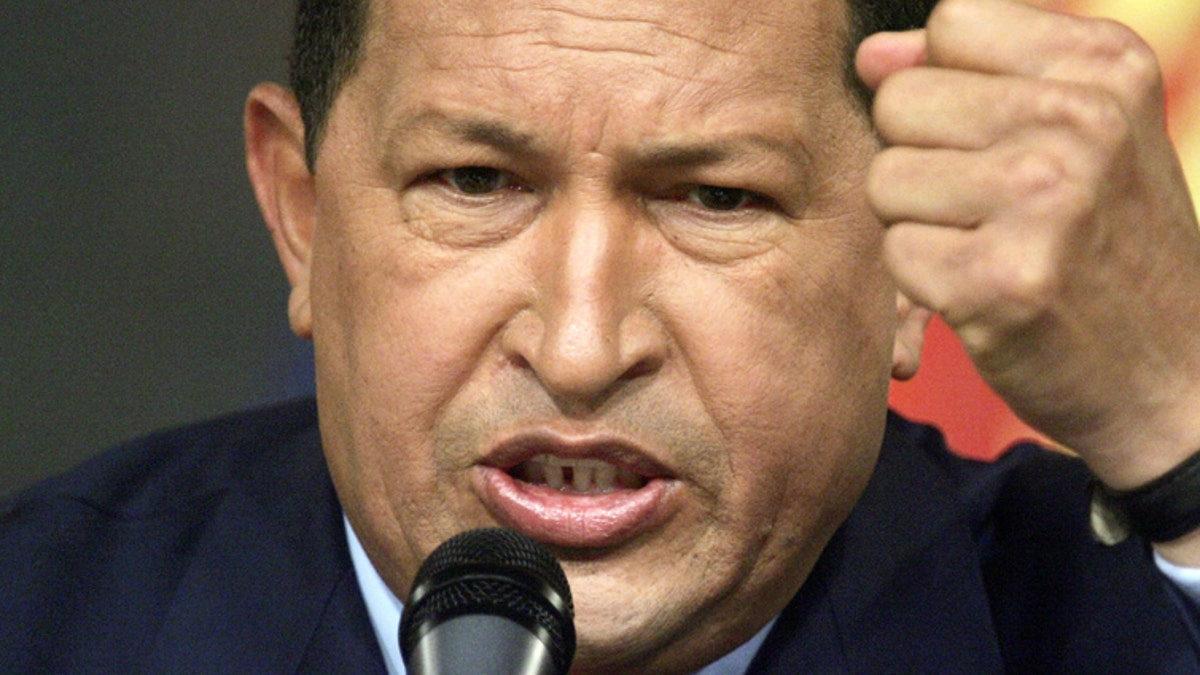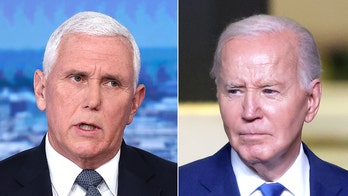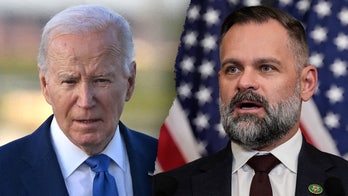
CARACAS, VENEZUELA - DECEMBER 05: Venezuelan President Hugo Chavez speaks at a press conference in Miraflores Palace December 5, 2006 in Caracas, Venezuela. Chavez was officially declared the re-elected president by electoral authorities today after defeating challenger Manuel Rosales in the December 3 election. (Photo by Mario Tama/Getty Images) (2006 Getty Images)
The government of Venezuela has recently announced plans to raise the minimum wage. This should send waves of exhilaration through the hearts of union leaders, leftist academics and progressives the world over.
What a splendid thing that in a time of uncontrolled inflation, food shortages, electrical blackouts, a host of other economic catastrophes, and a looming election, Hugo Chávez should propose raising the minimum wage.
Why mention the election? Because minimum wage increases make more sense politically than they do economically.
The establishment of minimum wages by government decree is almost a universal economic policy in most underdeveloped countries. The policy defies over two hundred years of strongly held economic principles; if the price of any good or service is kept too high, i.e., at levels above those set by a free, competitive market, some of those goods or services will remain unsold. This is true of eggs, iron, automobiles or labor. When wages are too high, relative to their output, there is unemployment.
Wages, like other factor prices, also differ for different types of producers even within the same industry, economy or country. By arbitrarily raising wages across the board, irrespective of these differences, the effect is to squeeze out the least cost-efficient producers. In other words, bigger, more profitable producers can absorb the increase; the less efficient ones lay off workers, substitute machinery for labor or go out of business entirely. The net effect is greater unemployment and fewer entrepreneurs.
Like minimum wages, another of Chávez’s populist policies is to manipulate gasoline prices to show concern for the poor. The results show, however, by controlling the price of gasoline below market levels, the Chávez regime provides a substantial subsidy to the richest Venezuelans who consume more gasoline than the poor. One report by Alejandro Grisanti of Barclays Capital, in the spring 2011 edition of America’s Quarterly, estimated that the regime gave the richest families $3,318 in gasoline subsidies in 2010, while the 25 percent in the lowest bracket received only $479.
Without a basic grasp of economics, these factors are overlooked.
But the government planners either don’t have, or don’t care about a grasp of economics. They are looking to re-elect those in power. What can be more appealing than to give everyone a raise, regardless of the effects of such a raise after the election?
Moreover, as Chávez’s policies continue to fuel inflation, depreciating everyone’s purchasing power, it gives people the illusion of catching up to soaring prices. In fact, the wage raises are in inflated currency, so instead of boosting output, the government’s policy will increase the amount of money chasing the same amount of goods. Whoever receives the wage raise first, like loyal government employees, will benefit while those getting them later will stare at empty shelves. Last year's 26.5 percent hike of the minimum wage trailed Venezuela's inflation rate, which ended 2011 among the highest in the world at 27.6 percent.
Chávez’s policies, despite his rhetoric, are not unlike those pursued in the past by populist governments throughout Latin America. In 2003, upon coming to power, one of Chávez’s mentors, the late Néstor Kirchner, used funds intended to pay interest and principal on Argentina’s enormous deficit to fuel government expansion. In June 2005, the Kirchner government forced thousands of bondholders of the defaulted debt to shave off over 66 percent of the $103 billion in liabilities, exchanged the defaulted paper for discounted offerings.
A similar haircut awaits Venezuela’s retirees. Chávez recently announced plans to transfer all public and private retirement savings to the control of the central government for safekeeping. This means the government will now have access to hard currency to finance its current spending and will pay off retirees with inflated money it prints later.
These policies have long hampered Latin American economies, affecting the rate of development, the level of employment, the prospects of industrialization and the overall pattern of economic activity in many countries. They are largely responsible for the poverty and inequality populist movements feed on. Through these policies the populist governments, like that of Chávez, are both the arsonists and the firefighters.
Let’s hope Venezuelans reject this brazen attempt to buy their votes with bankrupt economic policies.
Fernando Menéndez is an economist and principal of Cordoba Group International LLC, a strategic consultancy.
Follow us on twitter.com/foxnewslatino
Like us at facebook.com/foxnewslatino




